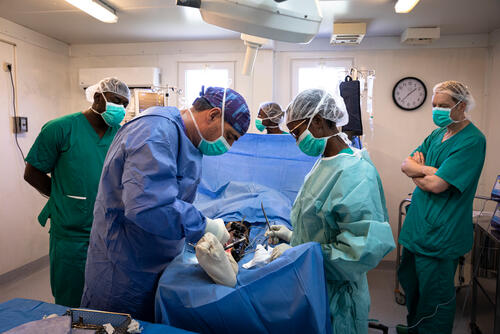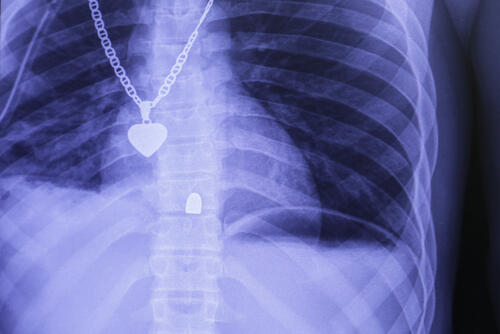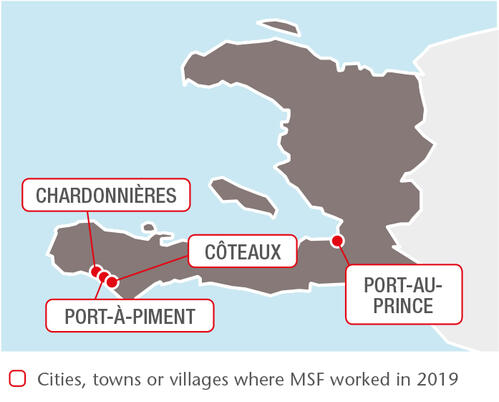
2,860
2,86
880
88
Since mid-2018, Haiti has been in the grips of a major political and economic crisis. In 2019, this led to massive demonstrations that shut down much of the country for months at a time, as streets were barricaded and protesters clashed with the police. Many public medical facilities struggled to keep running due to shortages of drugs, blood, oxygen, electricity, fuel and staff. Private medical centres were also badly affected and forced to reduce staff or even shut down altogether. During the worst of the violence, medical facilities were looted, and healthcare workers and ambulances attacked.
In the five medical facilities where MSF works in Port-au-Prince and Port-à-Piment, our teams observed the effects of the crisis first-hand. In a rapidly deteriorating situation, we had to deal with increasing demand for care.
Health services in Port-au-Prince
In November 2019, in order to meet the needs of people seeking lifesaving surgery, we opened a trauma hospital in the former MSF-run Nap Kenbe facility in Tabarre neighbourhood. We quickly expanded its capacity to 50 beds, and in the first five weeks alone, we saw 574 people at our triage. Of these, 150 were admitted with life-threatening injuries, 57 per cent of them with bullet wounds.
Our emergency and stabilisation centre in Martissant, a slum area severely affected by gang violence, treated 29,452 patients in its emergency room, 2,669 of whom had violence-related injuries. Patients requiring specialist care were referred to other hospitals, including the Haiti State University Hospital, which we supported by donating medical equipment and supplies, rehabilitating facilities and training staff.
We continued to run the 40-bed Drouillard hospital, the only specialist burns facility in Haiti, which is located in Cité Soleil slum. In 2019, we admitted 580 patients for care and conducted 27,800 outpatient consultations. Because of school closures during demonstrations, we saw a spike in the number of children injured in domestic accidents, for example while playing too close to stoves. We also treated several patients with burns from street fires or fire bombs used by protesters.
In addition, MSF provided support to victims of sexual and gender-based violence in two public hospitals and at our own Pran Men’m clinic in the Delmas 33 neighbourhood. In 2019, we treated more than 1,260 patients. The number of patients decreased during the months when the city was on lockdown, because insecurity prevented people from seeking care. In Haiti, sexual violence remains a neglected and largely under-reported medical emergency.

Port-à-Piment
In the southwest of the country, we supported emergency and maternity services, in Port-à-Piment health centre. During the year, our team there assisted 1,070 births and provided family planning services to more than 1,420 patients. We also supported health centres in Côteaux and Chardonnières by donating supplies, training staff and organising referrals.

















